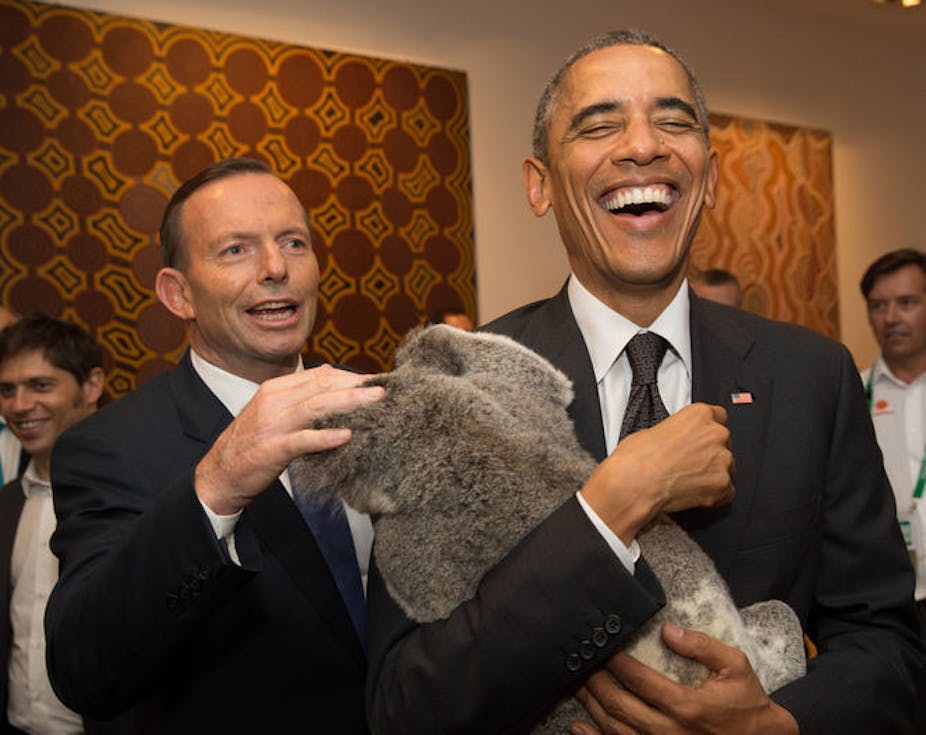In April, Treasurer Joe Hockey set the tone for his economics policies in a speech in New York on what he referred to as ending the “entitlement culture”.
Hockey, who had given a defining speech in 2012 about ending the age of entitlement, outlined his mission:
Waste and inefficiency in government spending must be rooted out. Government must live within its means.
Government benefits must be sustainable, fair and targeted to those in genuine need.
Welfare must be a safety net, not a cargo net. We cannot allow vast numbers in society to remain in an entitlement culture.
Thus the script was set. But it has not exactly gone to to plan.
Recommendations of a wide-ranging Commission of Audit set the scene for what many presumed would be a bloody May budget. Hockey announced a A$29.8 billion deficit; but it was clear few in the government realised how unpopular proposed cuts to family payments, health reform, programs targeting the unemployed (particularly young people) and measures affecting pensioners would prove to be.
With the budget quickly defined as unfair, the following six months would be marked by intense political gridlock and disastrous electoral fallout. Australians clear valued their entitlements.
December’s Mid-Year Economic and Fiscal Outlook (MYEFO) revealed a A$40.4 billion deficit, which Hockey attributed to plunging iron ore prices leading to Australia’s worst terms of trade in 50 years, and a recalcitrant Senate blocking many of the government’s key spending cuts.
The government had managed to push through a number of measures, such as a fuel tariff, the axing of Labor’s carbon and mining taxes and the implementation of a 2% deficit levy on high income earners. After a backflip from the Palmer United Party, the Coalition scrapped a planned increase in superannuation contributions and axed the low income super contribution, agreeing to dealy this a year.
However, other key initiatives such as $7 GP co-payment have been dropped (reintroduced as a cut to the Medicare rebate); redrafted, such as deregulation of the education sector, defeated before being put straight back onto the agenda by Education Minister Christopher Pyne; or in flux, such as the proposal to force jobseekers under 30 to wait six months to access welfare payments.
Nevertheless, the Coalition is still clinging to hopes of a surplus, however distant - even as Australians learned a new economic term: income recession.
The government’s message has this year consistently been that of budget crisis, led by unsustainable government spending and debt.

But experts such as Professor Max Corden argue that what Australia faces is a revenue crisis, which needs to be addressed through taxation. Despite calls for the GST to be raised and a re-think of generous tax measures for property owners such as negative gearing and tax subsidies for superannuants, the government is so far standing firm.
Integral to any decisions will be two important government white paper policy processes due to report next year, focusing on Australia’s system of federalism - which among other things will tackle which tiers of government have fiscal responsibility for services - and taxation, now due next year.
Other key policies to look out for will be Professor Ian Harper’s final recommendations from the Competition Policy Review.
In business, there was much pain for Qantas this year as it sought to stem the bleeding caused by a savage domestic capacity war with Virgin and continuing losses in its international division. In February, the company announced it would cut 5000 jobs. Chief executive Alan Joyce was not one of those, despite loud calls.

In September the airline posted its largest ever loss - A$2.8 billion - that included a A$2.6 billion writedown on its fleet. Hamza Bendemra wondered at the time whether it had invested in the wrong planes.
Meanwhile, Toyota joined Ford and Holden in announcing it would cease manufacturing cars in Australia by 2017, leaving Australia without a local automotive industry. The move, while expected, caused soul searching over the future of Australia’s manufacturing industry more widely.
2014 was the year of the free trade agreement, with Australia finalising FTAs with South Korea and Japan - and most notably China, after a 10 year gestation.
Also on the international scene, in what many insiders dubbed a summit of two agendas, Australia’s first G20 summit in Brisbane in November will be remembered for wrangling over climate change, and world leaders hugging koalas.

But beneath the superficial, there was news on the plan to crack down on tax cheats, and real movement to close the gender gap on female workforce participation.
G20 countries endorsed treasurer Joe Hockey’s 2.1% collective growth target with infrastructure and trade lead items. Achieving the US$2 trillion growth target by 2018 is far from certain, but by implementing a monitoring plan to keep G20 countries honest, Australia made accountability a key agenda item.
As the Australian economy is weaned off its reliance on the very much waning commodities boom, there is very much a wait-and-see sense about the future. Will there be further interest rate cuts? How will the newly inked free trade agreements, (notably that with Japan, which kicks off early next year) affect Australia’s economy?
Will Reserve Bank of Australia (RBA) governor Glenn Stevens be granted his wish for the Australian dollar to be at US75c by next December? We’ll bring it all to you in 2015.
Top five business and economy stories:

